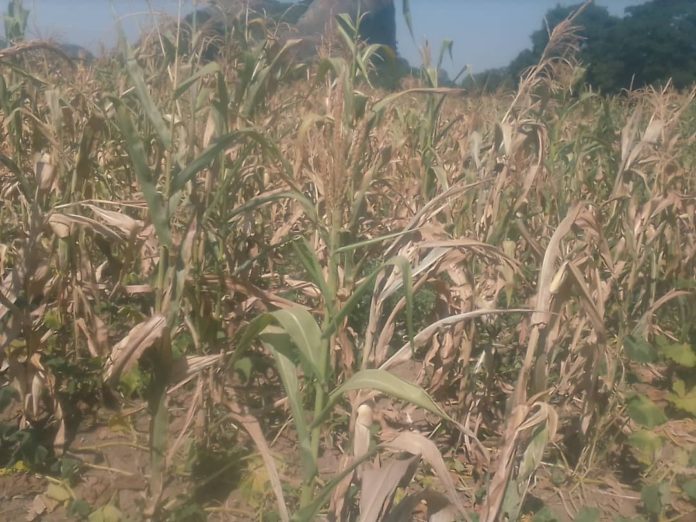
BY TAFADZWA KACHIKO VILLAGERS in most districts of southern Zimbabwe are left with food supplies of up to six months following poor harvests.
According to the latest Crop and Livestock Assessment report, Mberengwa, Zvishavane, Masvingo, Zaka, Lupane, Nkayi, Umguza, Matobo and Umzingwane are running low on food supplies, as are Mudzi, Rushinga, Uzumba Maramba-Pfungwe and Chivi.
The report says districts such as Chikomba, Hwedza, Marondera, Mutoko, Nyanga, Chimanimani, Shurugwi, Chiredzi, Gutu, Binga, Bubi, Bulilima and Gwanda have food supplies for up to nine months, according to the report.
Sanyati, Mbire, Mt Darwin, Murewa, Chipinge, Mutasa, Kwekwe, Tsholotsho, have food supplies lasting a year.
Speaking before the Thematic Committee on Peace and Security on Thursday, Public Service, Labour and Social Welfare secretary Simon Masanga, however, said there was enough grain to feed the nation.
“We are not bothered because there are enough grains at the Grain Marketing Board (GMB). We had a serious drought situation in 2016 because we had no grain in stock. If you go to Mashonaland West, particularly Mahanguta and say there is hunger, they will laugh,” he said.
“We are currently covering four million people and we requested the Ministry of Agriculture to continue availing grains util June 2021. Because there is drought, we have increased the coverage.”
Masanga claimed that the food distribution programme would not be politicised.
- Chamisa under fire over US$120K donation
- Mavhunga puts DeMbare into Chibuku quarterfinals
- Pension funds bet on Cabora Bassa oilfields
- Councils defy govt fire tender directive
Keep Reading
“There have been accusations that the food mitigation programme is politicised. We support those who are food poor irrespective of race, colour or tribe. President (Emmerson Mnangagwa) is on record saying no one should die of hunger.”
This was after MDC-T senator Elias Mudzuri raised concerns over food politicisation to punish suspected opposition supporters.
Zimbabwe produced 1 752 014 metric tonnes of cereals in the 2021/2022 farming season against a national demand of 2 167 599 tonnes, leaving a deficit of 415 585 tonnes.
- Follow Tafadzwa on Twitter@TafadzwaKachiko











